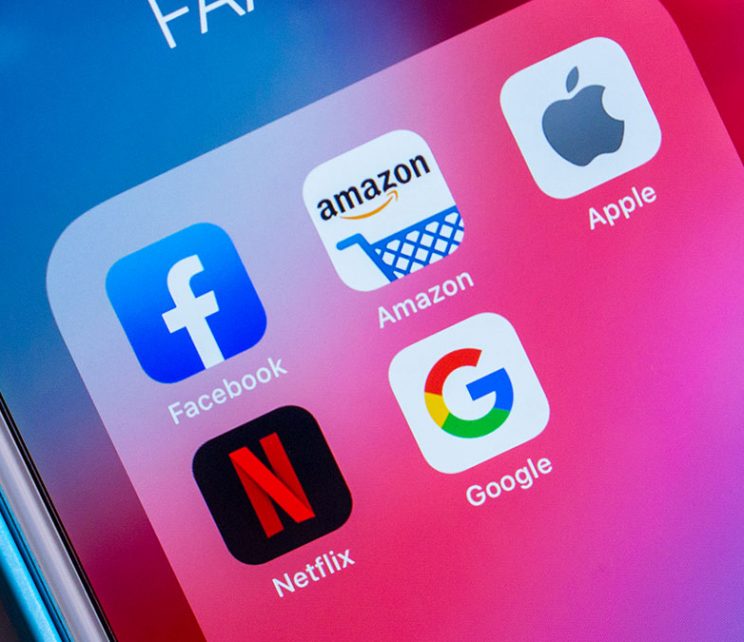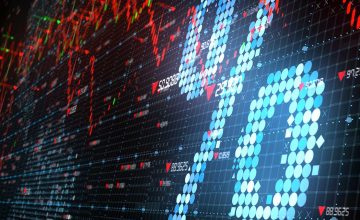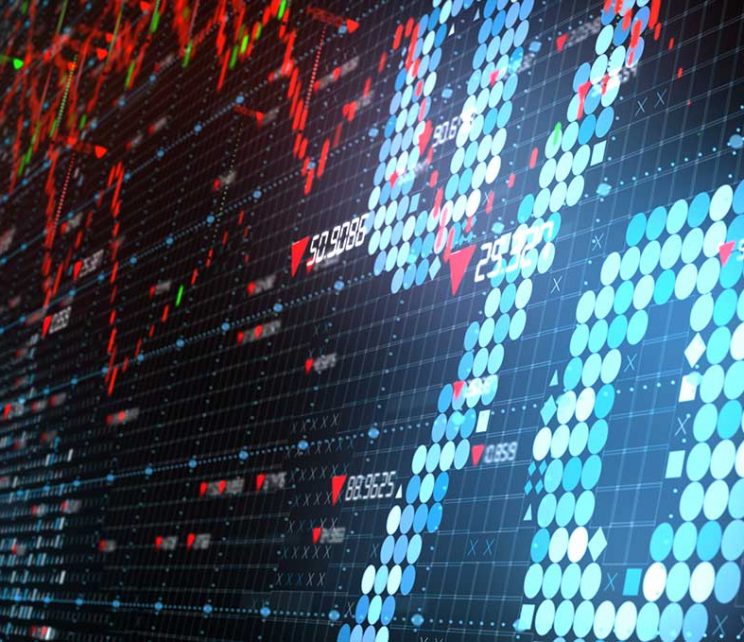
Mainstream Online Web Portal
LoginInvestors can view their accounts online via a secure web portal. After registering, you can access your account balances, periodical statements, tax statements, transaction histories and distribution statements / details.
Advisers will also have access to view their clients’ accounts online via the secure web portal.
The Point
Quick, actionable insights for investors
Global Equities
Global equities: where tech investors should be looking now
For a decade the tech sector was a darling among global equities investors — providing outsized returns on the back of transformational breakthroughs in personal technology, cloud computing and streaming entertainment.
This year higher interest rates triggered a sell-off across the sector as the current value of future cash flows reduced and some emerging companies found it harder to raise capital.
But there is still opportunity in the sector for selective investors, says Sue Scott, a senior investment analyst in Pendal’s global equities team.
Take a look at makers of analog semi-conductors — essentially the eyes and ears of electronic devices, which translate real-world signals into digital messages.
They’re in cars, battery chargers, air conditioners, electric grids, medical devices, factory robots and more.
Analog semis are a good example of how an index approach to technology misses the nuance in individual sectors, Sue says.

Global equities: Is it time to be fully invested?
Quick view
Global equities: Is it time to be fully invested?
It’s time to be fully invested in financial markets, not sitting on the sidelines, says Pendal’s head of global equities Ashley Pittard.
Earnings seasons in the US and Europe have been strong, and there are signs inflation is peaking, which would allow the US Fed to slow its interest rate cycle, says Ashley.
On a sales basis, about half the companies beat consensus forecasts. On an earnings basis that rises to nearly two-thirds.
There have been exceptions, says Ash. “But when you look at this market, it’s one that you want to be fully invested in.
“We are at the point where the Fed might pause for a bit, or only has a couple of rate rises to go and earnings are growing around 5 per cent.
“That’s a good position for equities because the price-to-earnings multiple on Wall Street has come back to more normal levels on a historical basis.”

Global Equities: where to hunt as big tech stocks drop
Quick view
Global Equities: where to hunt as big tech stocks drop
Rates are rising and long-duration assets like big US tech stocks are underperforming.
Where should investors look?
“The world is normalising and people don’t need as many streaming services,” says Ashley Pittard, Pendal’s head of global equities.
“People aren’t buying as much stuff online. They’re going out again and eating a meal.
“That’s why in the current earnings season in the US we’ve seen Amazon and Netflix disappoint but Coca-Cola’s numbers were fantastic.
“Coca-Cola is in a duopoly market and it’s got pricing power. In an inflationary environment, that’s what you want.
“Covid brought forward demand for many tech products. There are supply chain problems and higher input prices.
“And rising interest rates hurt long-duration assets because the discount rate applying to future cash flows increases.”
Be wary of the FAANGs and look for companies that can move prices with inflation, says Ashley.

Ashley Pittard: US Fed may stretch out rate hikes
Quick view
Ashley Pittard: US Fed may stretch out rate hikes
The humanitarian crisis in Ukraine caused by Russia’s unprovoked invasion must be our first concern says Pendal’s head of global equities Ashley Pittard.
Assuming a peaceful resolution is found, what can global equities investors expect in terms of economic recovery?
While bourses have sold off, particularly in Europe, history tells us equity markets typically recover within a year, says Ashley.
“On average, markets fall between 4 and 15 per cent in the near term after an attack,” says Pittard. “When it looks like someone is getting control, usually a year after that equity markets are higher.”
The war means global central banks won’t be as aggressive raising interest rates as they would have been otherwise — especially in Europe, believes Ashley.
“The Fed will have to raise rates but maybe it will do it a bit slower because it won’t want to be too aggressive when there’s a war on.
“It means there could ultimately be more interest rate hikes, though they may be delayed.”

Global equities: where to hunt as tech rotates to value
Quick view
Global equities: where to hunt as tech rotates to value
“Last year was a tale of two halves,” says Pendal’s head of global equities Ashley Pittard. “The first was about re-opening and the second was about Delta and Omicron.
“This year will also be a tale of two halves. The first half will be all about inflation and higher interest rates, volatility and rotation out of tech stocks.
“The second half will depend on how well the Fed does its job. Will it go too hard and push the economy into recession or will it do enough to cap inflation and not kill the business cycle?”
If we get get “four rate hikes, and not six or seven” there should be a re-rating of the market in the second half,” says Ashley.

Emerging Markets: What’s driving Indonesia’s resurgence
Quick view
Emerging Markets: What’s driving Indonesia’s resurgence
Indonesia’s economic outlook has been attracting the attention of investors recently.
Why so?
Pendal’s Paul Wimborne says an improved trade balance on strong exports of commodities like palm oil, coal and nickel is paving the way for a resurgence in domestic demand.
“Indonesia is at that sweet spot in the cycle where the export side of its economy is doing well, the currency has the potential to go stronger, and domestic demand – which has been subdued for 10 years – looks like it could pick up.”
South-east Asia’s biggest economy is also benefiting from a government push to encourage more manufacturing and reform labour markets, says Paul, who co-manages Pendal Global Emerging Markets Opportunities fund.
Paul’s preferred exposure to Indonesia is via companies that benefit from rising domestic demand, such as banks, retailers and auto dealers.

Emerging Markets: Commodity cycle could be well timed for Brazil investors
Brazil’s powerful agriculture, energy and mining sectors have been among the world’s big economic winners from the supply squeeze in 2022.
But with an election due in October markets are starting to get nervous about a change of government.
Left-wing Luiz Inácio Lula da Silva is leading in the polls. When he was last elected in 2002, markets sold off sharply, fearing a big-spending, left-wing agenda.
“But he moved centre-left when actually took office,” says Paul, who co-manages Pendal Global Emerging Markets Opportunities fund.
That was largely because his presidency coincided with a commodity super-cycle that boosted export conditions for Brazil and allowed increased spending.
Ironically, a similar story may play out again in 2022. High prices for energy, agricultural commodities and iron ore are boosting Brazil’s export earnings and lifting tax revenue.
“It’s too early to say, but it may well be that if Lula is elected he could once again be very fortunate in the timing of the commodity cycle.”

Emerging Markets: Three stocks set to benefit as supply returns
Quick view
Emerging Markets: Three stocks set to benefit as supply returns
Economists often see inflation as a demand problem that can be solved with higher interest rates and tighter fiscal policy.
But there’s another side to solving higher prices — lifting supply.
As the world rebuilds supply capacity, investors have an opportunity to invest in companies that will benefit, says Pendal Emerging Markets manager Paul Wimborne.
“Whether that’s funded by governments or private companies, we’re finding opportunities at the moment in some portfolio holdings that are exposed to this trend and are experiencing very strong business conditions as a result of new investment in capacity.
“There’s been lot of investment into technology, the internet and building out the digital infrastructure. But not a lot has gone into what we would call the old economy — energy and industry.
“We think that might be more of a focus over the next decade.”
Loading posts...













